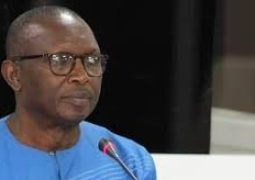
The coronavirus is dominating wall-to-wall media coverage. The virus originated from the city of Wuhan in China and now it has reached every corner of the world.
There are three distinct strains of the coronavirus:
Type A is closest to the one found in bats and pangolins and has two sub-clusters
One sub-cluster linked to Wuhan and the other is common in US and Australia
Type B is derived from type A and has become the most prevalent in Wuhan
Type C is the 'daughter' of type B and spread to Europe via Singapore
The stability of Covid-19 is similar to that of SARS, but unlike SARS, Covid-19 can be transmitted prior to the manifestation of any symptoms; there are both symptomatic and asymptomatic carriers. It is a respiratory disease that spreads through human-to-human contact, droplets carried through sneezing and coughing as well as germs left on inanimate objects. The virus is transmitted through droplets, or little bits of liquid, mostly through sneezing or coughing that aerosolize these particles, meaning they can stay in the air a little bit longer. Being airborne the virus can stay suspended in the air for hours, depending on the heat and humidity,
The signs and symptoms include continuous cough and a high temperature above 37.8C
On Wednesday 11th March 2020, the World Health Organization (WHO) declared the Covid-19 a pandemic; many countries continue to report cases of infection. On Sunday the 15th of March 2020, Royal Air Maroc Flight AT579 arrived in Banjul bringing the first confirmed case, a young Gambian lady travelling from the UK. This triggered the adoption of national prevention measures impacting on the lives of the people, our earnings, the way we live and the way we interact. It is commented that life will never be as before; the outbreak raises both scientific and ethical questions. (As of Saturday 11th April 2020, the country has nine Coronavirus cases. MRC conducted the tests. One person has died from the deadly disease. (He was a Bangladeshi)
Preventive Measures - frequent washing of hands, use of disposable tissues for coughs, avoiding touching of the face and observing of social distancing of at least 2 meters apart.
Gambians were advised and sensitized on: improving on personal hygiene, frequent handwashing with soap, covering the mouth with tissue or the elbow when coughing or sneezing, avoid handshaking and observe social distancing to prevent transmission. Also check for signs and symptoms by temperature recording, wearing of masks, testing, quarantine and isolation of cases, testing to identify positive cases and disinfecting of contaminated objects and surfaces.
A little later on 18th March 2020 a proclamation was made by the Head of State declaring a state of public emergency throughout The Gambia. It must be stated that a State of Emergency should be reasonable, justifiable, necessary and transparent as in a democracy. On Friday 27th March 2020 the following measures were enforced:
Closure of all non-essential food outlets and services such as bars, cafeterias, cinemas, video clubs, gymnasiums, museums, night clubs, public swimming pools, events halls, casinos, gaming parlors and sporting venues. All public places of worship were also closed. All schools were closed and teaching programs introduced with the support of the mass media, radio and television.
The number of people attending social gathering, such as weddings, naming ceremonies and funerals were restricted to a maximum of ten people. And all public transport mandated to carry not more than half of the total number of passengers allowed by law. Soon after more measures that included airport and borders closure was adopted.
The restriction of movement is very necessary for the control of the spread of the virus and must therefore be observed. However, the poorest of the poor, the unemployed and the self-employed had to strive daily for their food and other necessities; if compelled to stay at home these would starve to death due to inability to purchase and store reasonable quantity of food. The argument that only those who earn a living in the so-called essential services should be allowed to go out to work is short-sighted, because working people work for their living not necessarily because they operate in essential services because that is what it takes to enable them to earn a living, put food on the table and pay utility and other family and social bills. Otherwise they run the risk of starvation
It is conceivable therefore to consider the socio-economic impact and plan for a scheme to subsidize the loss of income.
Impacts on The Gambian Community - Loss work, income and loved ones:
Gambians in the diaspora are being impacted by the ‘lockdown’ and reduced earnings that resulted to lower remittances. The closure of hotels, stalls, ‘lumos’, and self-employed workshops, reduced number of farmers and farming activities and horticultural markets have similar effects on the local residents. Farmers resort to selling of stored food, seeds, implements and ruminants to make up for lost income. National programs to support the most vulnerable members of society including men, children, elderly and the physically challenged are urgent necessities.
The macroeconomic effects of this pandemic are an addition to challenges already extant in the economy complicating the effects of the liquidation of Thomas Cook tour operators, 3 Years Jotna demonstrations and recent poor cropping seasons. In a report to the National Assembly, the Finance Minister informed that Gambia’s Gross Domestic Product (GDP) would grow by a paltry 2.5 percent as opposed to the previous forecast of 6.3 percent for the year 2020 due to the effects of the coronavirus pandemic. The Managing Director of the International Monetary Fund (IMF) issued the following statement: On 13th April 2020 the IMF Executive Board approved immediate debt service relief to 25 of the IMF’s member countries under the IMF’s revamped Catastrophe Containment and Relief Trust (CCRT) as part of the Fund’s response to help address the impact of the Covid-19 pandemic. The countries that would receive debt service relief include The Gambia.
Impact to the Christian Community
Churches are closed and public gatherings stopped. A stop to congregational prayers brought disappointment and regret to the faithful; the spiritual comportment is to some extent filled by radio and television prayer sessions including live steaming of church services. These have another side; they give opportunity to deepen faith and hope for a better life.
The ‘sign of peace’ with shaking of hands are stopped. The Sacraments including Reconciliation and Holy Eucharist could no longer be given. Funerals and baptisms are being celebrated by very small and immediate family members of not more than 10. Weddings are put on hold. Special precautionary measures are adopted for ‘laying of hands’ during Confirmations, Ordinations and Anointing of the Sick. Prayer processions including ‘Divine Mercy’ and Easter Monday ‘Walk Prayer’ are equally cancelled
Churches incur losses of church revenue that are acquired from offerings. There are challenges to cope with parish expenses namely living expenses of the parish priests, utilities and wages to church employees. To every challenge however there is an opportunity!
The Christian situation is expressed in the following: ‘We do not deny that times are difficult, most of us spent Lent locked up at homes, unable to physically participate in any of the services, and we cannot escape the global rolling 24/7 news coverage, informing us of the grim statistics and mounting death toll. It is also true that the economic crisis resulting from the coronavirus is going to be brutal and difficult to recover from but it is also true that our Hope transcends these current harsh realities’.
The Christian community has a long track record of adherence and support to government activities and by all indications and in consideration for the paramount need for the preservation of human life the Church will continue to do so.
The Nation’s State of Health Readiness
On Monday, May 21, 2018, Mr. Modou Ndow, a Gambian blogger wrote a treatise on the Edward Francis Small Teaching Hospital (EFSTH) in Banjul. He described the deplorable physical structure, insanitary environment, piles of junk materials, material and equipment in poor state of repairs, horrific and hazardously poignant smell emanating from toilets
On 3rd April 2020, Gambia’s Health Minister, Dr. Ahmadou Lamin Samateh disclosed to the National Assembly while responding to the concerns made by lawmakers during the debate on the extension of the state of public emergency in the Gambia, that the World Bank was going to build a brand new state of the art infectious disease treatment center in the Gambia within the shortest period. This project, if successfully implemented will improve public health services in the Gambia.
The recent Ebola epidemic in the West Africa Region (2013-2015) spared the Gambia but and contributed in uplifting epidemiology and public health state of readiness; resources put in place for the Ebola epidemic was used to furnish, equip and operate the current epidemiology unit. However, the Coronavirus Covid-19 Pandemic will once again expose the weak state of public health in the Gambia. It is very necessary to build infrastructure and human resources necessary for handling similar challenges. The capacity for testing Covid-19 should be increased so as to determine the correct prevalence rate. More needs to be done to escalate testing, isolation and contact tracing, which are the backbone of the response. Communication within the relevant health agencies and health awareness programs should be promoted. There is also the need to provide adequate personal protective clothing for medical staff. The Gambia must invest in Public Health; provide laboratory diagnostic tools and intensive care equipment. Laboratory Scientists and Port Health personnel are to be increased in number and strengthened.
Recommendations
- The National Assembly to request for a budget review. MPs can make savings from the Travel budget, the State House budget, the Development budget and the Office/Stationary budget. Use the savings made to buy food items and pay for utility bills; supply these to less fortunate families through Area Councils.
- Declare a two week curfew from 9pm to 6am
- Support small businesses with a soft loan through the Central Bank to be repaid over one year. If not the small businesses will close down.
- Send all non-essential staff home on full salary.
- Street vendors and handheld material sales at the market areas should not be allowed.
- Sale of merchandize on donkey carts and wheel barrows should be disallowed.
- Staffs that need a month’s salary payable within a year (1x12) advance while they are at home on self or imposed isolation should be provided.
- Due to the drop in the World Oil price the pump prize should be reduced so that the taxis can continue to carry not more than half the registered number of passengers.
- The Central Bank through the Gambia Chamber of Commerce and the Women Chamber of Commerce should give soft loans to small Businesses.
It is said that the Gambia will never be the same after the pandemic. The cultural, social fabric and the sense of belonging to society are all impacted on either positively or negatively. It is hoped that the adopted hygiene and sanitation practices and the positive social behavioral changes will continue beyond the pandemic period. And that in The Gambia we only have to deal with the preventive phase of containing the pandemic since our fragile public health delivery infrastructure (similar as in many African countries) will be inadequate to cope with the more elaborate management of full blown infections.




